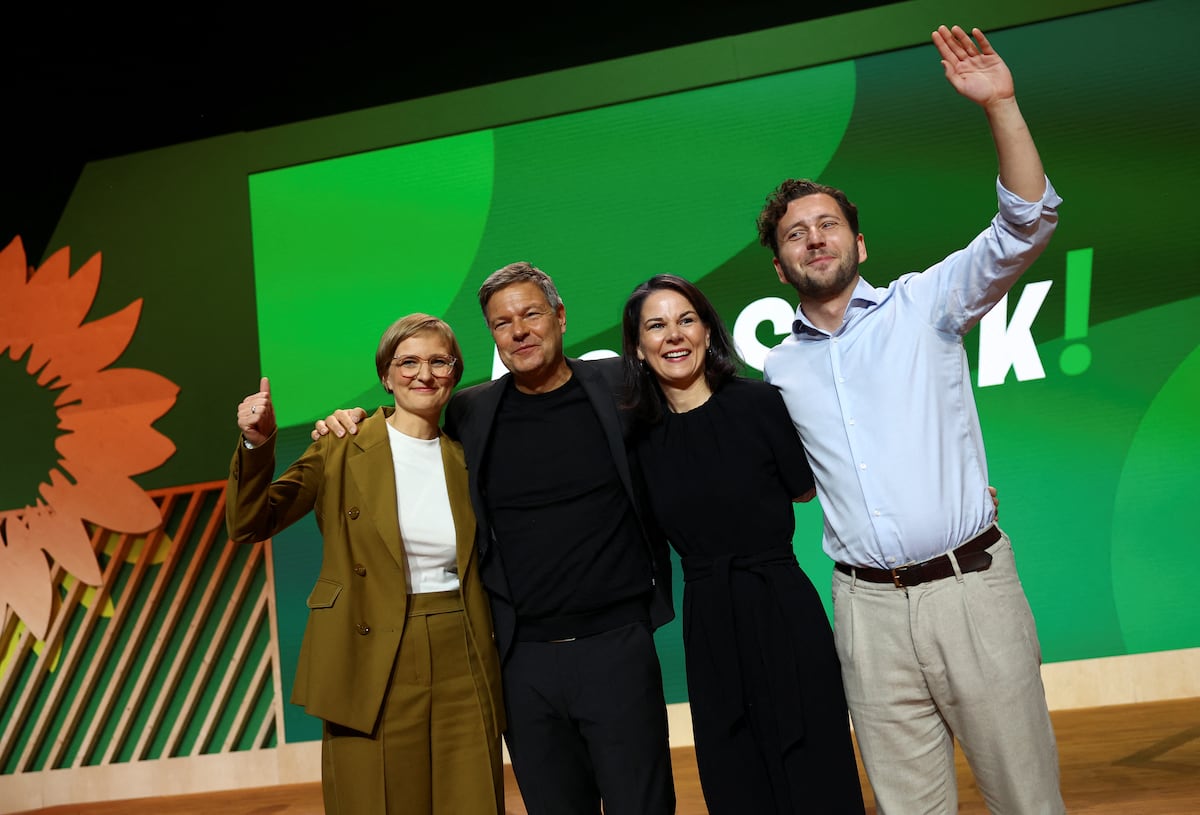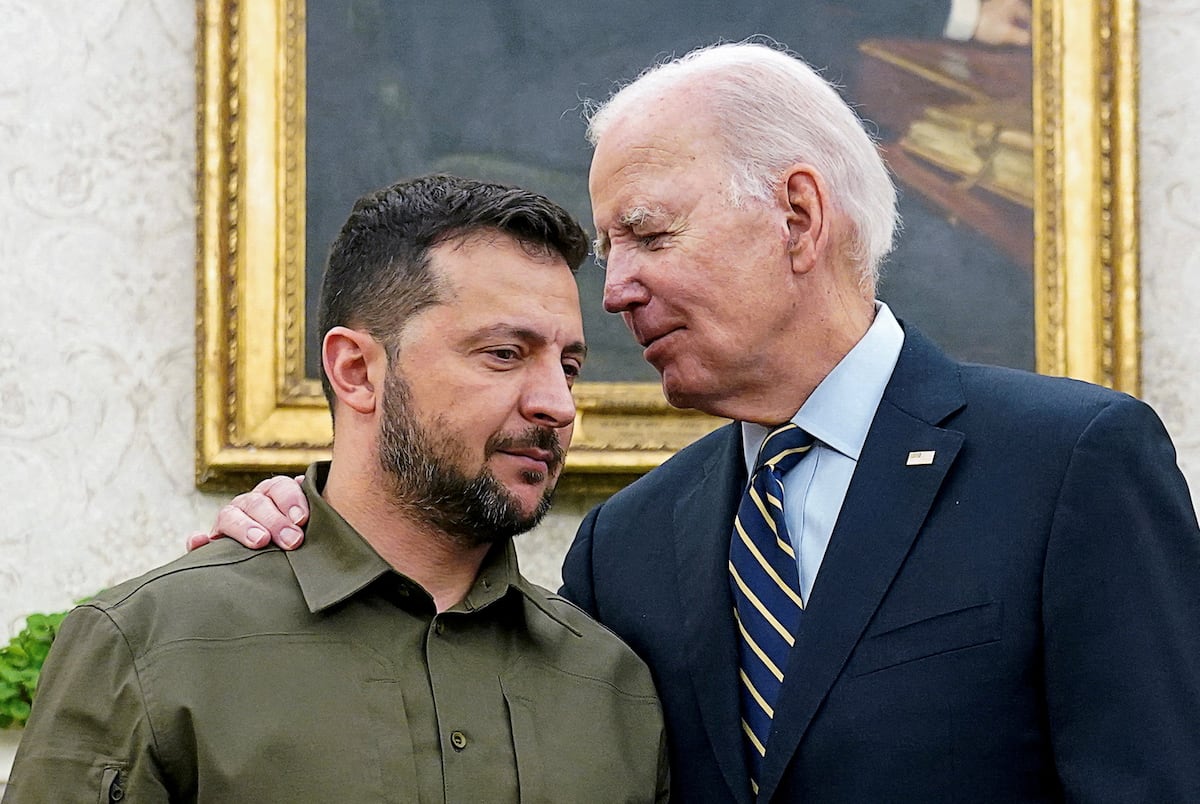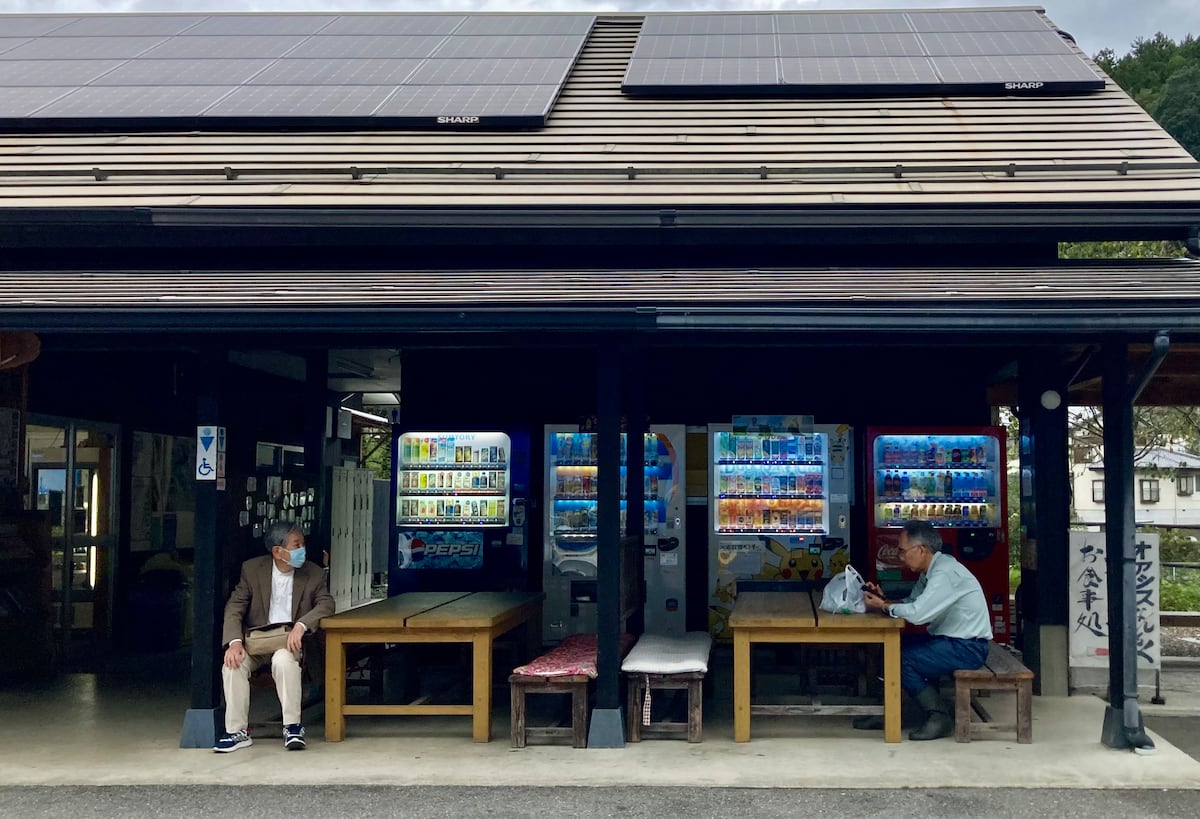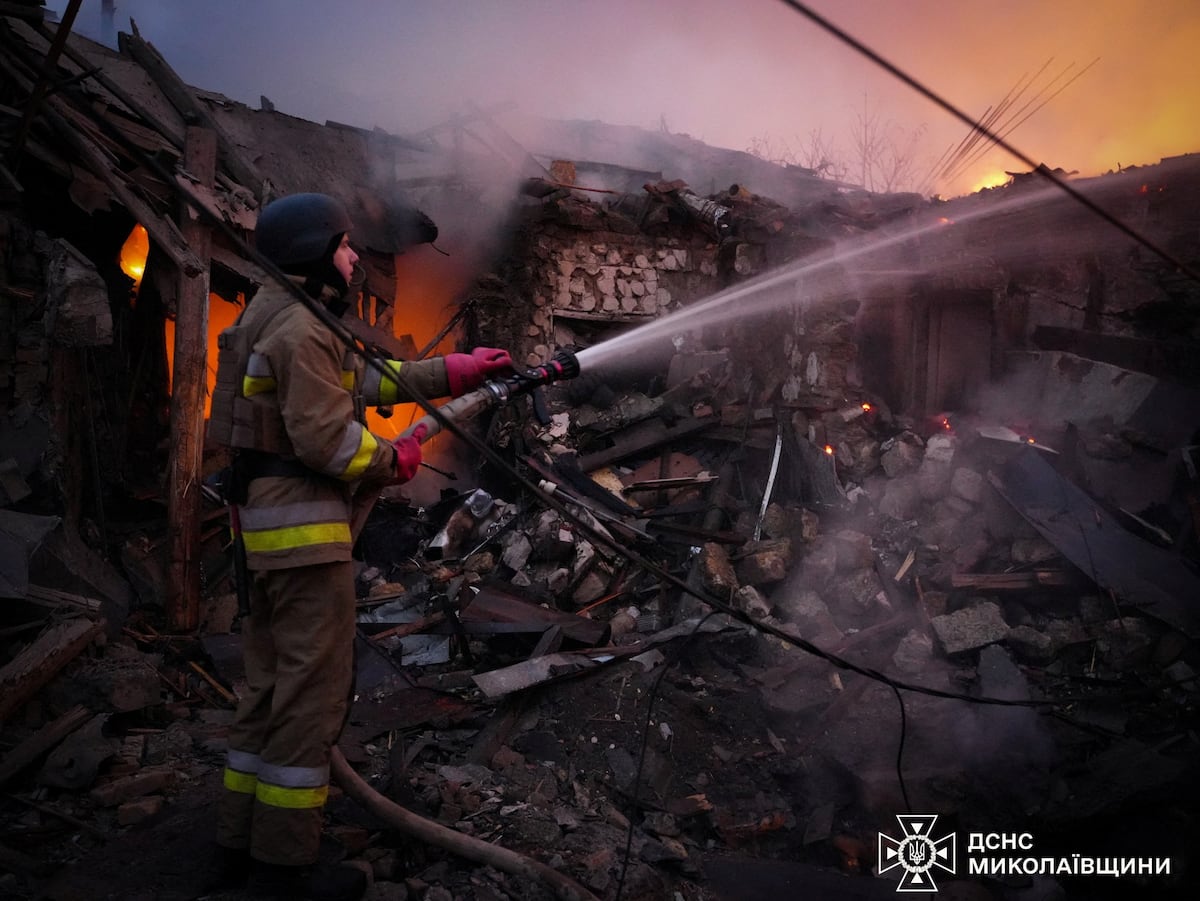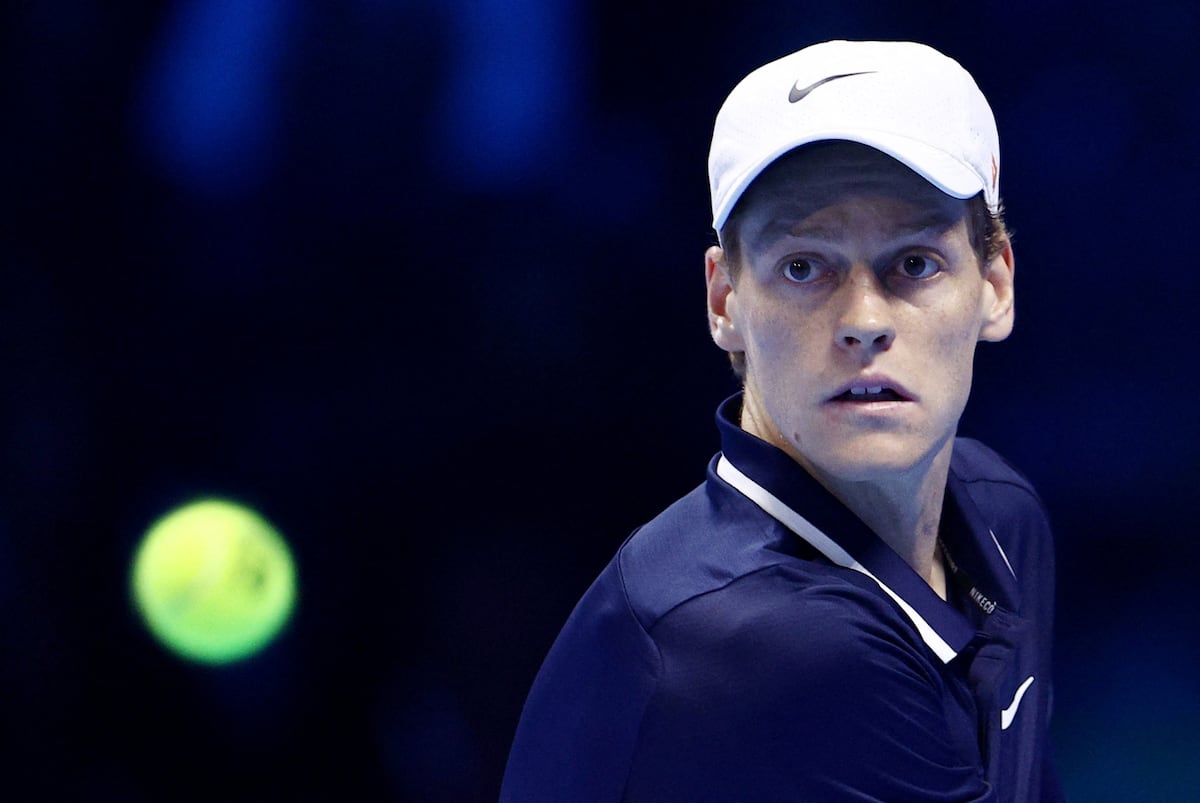The German Greens are preparing for a possible alliance with the Christian Democrats right after the early elections on February 23. At the congress held this weekend in the city of Wiesdaden, 96.5% of delegates approved that the current Minister of Economy in the dying Government in Berlin, the questioned Robert Habeck, be the candidate for the chancellorship. The unanimity around this “super-pragmatic” politician, as defined by the current Foreign Minister, Annalena Baerbock, was almost complete.
From the speeches and conversations with delegates and militant veterans, another certainty emerged: that the objective of Habeck and the majority of the 800 delegates is to continue governing. If the numbers are enough, this party with a long assembly tradition, environmentalist and pacifist would easily ally itself with the Christian Democrats of Friedrich Merz, favorite to be the next chancellor. And this would be something new.
Alliance 90-The Greens – the full name of the formation that burst into German politics in the eighties, and transformed it – already governs in several federated states with the Christian Democrats. But they have never formed a government coalition on a national scale, an experiment that, at least in Wiesbaden, did not scare anyone, and had broad support.
“No problem! My parents voted for Christian democracy. And my wife wants to vote for the Social Democratic Party,” said Wolf-Christian Bleek, a doctor by profession and member of the Bavarian delegation in Wiesbaden. The family as a microcosm of the German consensus. “I hope,” he adds, “that we get enough votes so that we can form a coalition.”
And this is exactly the problem. Because the polls give Alianza 90-Los Verdes around 10% of the votes. A result that would place them in fourth position, behind the Christian Democratic Union-Christian Social Union (CDU-CSU), the far-right Alliance for Germany (AfD) and the Social Democratic Party (SPD) of Chancellor Olaf Scholz. This would complicate their continuity in power in Berlin, where they have been, since 2021, one of the three legs of the tripartite coalition that broke on November 6 when Scholz dismissed three liberal ministers.
The party of Habeck and Baerbock – the candidate in 2021 and responsible for the best result of the Greens (14.8%) – has emerged affected by the experience of the unpopular tripartite. Failed policies, such as the suppression of gas, coal and diesel boilers, fueled the image of environmentalism as an elitist and urban movement that punishes the middle and working classes. In September, after suffering several defeats in regional elections, the co-presidents of the Party, Ricarda Lang and Omid Nouripour, resigned by surprise. His successors were elected in Wiesbaden: Franziska Brantner, a member like Habeck of the royalist wing—now dominant over the leftists—and Felix Banaszak. Everyone conspired against the hypothesis of the electoral failure.
And in the hallways, a old wolf of politics, environmentalism, Europeanism and others isms He explained his optimistic bet: “Robert Habeck will lead the Greens to a result of between 15 and 18%.” Daniel Cohn-Bendit, a resident of neighboring Frankfurt, thinks that “the worst thing” would be to repeat a three-party coalition like the one that just fell, due to the difficulty in managing balances. Preferable would be, for him, a coalition between two. And, since the SPD will hardly be the party with the most votes, the CDU remains. An anomaly?
“Every democratic party must be able, according to the electoral results, to enter into a coalition with another democratic party,” argues Cohn-Bendit. “It’s simple. If the only possible majority is Christian democracy with the Greens, why reject it? The strength of the Greens lies in not excluding anything.” Dany the Redas he was known when he led the May 1968 revolt, adds: “It was said that it would not work [la coalición con los democristianos] on a regional scale, and it worked. Reaching compromises between two is easier than between three. They will achieve it. Given the world situation and in the United States, Germany cannot afford not to have a government after the elections.”
In his one-hour speech before a pavilion with thousands of people – including delegates, guests and journalists – candidate Habeck presented himself as a human politician, and a man who doubts and who a few months ago even considered leaving politics. Someone capable of assuming mistakes, like the one with the boilers. But also to carry others on others.
Although he has been Minister of Economy for three years, he blames the economic crisis on the energy policy – and towards Russia – of the great coalition of Christian Democrats and Social Democrats in the years of Angela Merkel. The grand coalition, he added, “is the reason for the stalemate.” That is why he defended that it should not be repeated. He didn’t say it like that, but it was understood: an environmentalist-conservative coalition would be preferable. And in Wiesbaden dissident voices were barely heard, perhaps because with three months until the elections it is time to close ranks.
But the Christian Democrat Merz is an unfriendly figure for many on the left, too conservative and liberal, too hostile in his statements to the Greens. An obstacle for the hypothetical coalition?
“Things can only be changed by the Government, but the question is whether many things could be changed with Merz,” says Peter Kallusek, delegate of the landof Rhineland-Palatinate. “There are many who believe that with Merz it would work. I have a different opinion.” A meeting point between the CDU and the Greens is military support for Ukraine: the times of extreme pacifism of the origins were buried with the wars of the 1990s in the Balkans. But sparks could fly in economic policies or immigration.
When the Franco-German Cohn-Bendit is asked if the German Greens are still a left-wing party, he replies: “What is the left? Is it left-wing or right-wing to support Ukraine? Defending the ecological transition in the face of climate change, is it left or right? And I will tell you one thing: regarding the ecological transition, we must find a compromise with the center of society. It cannot be done against the majority.”

